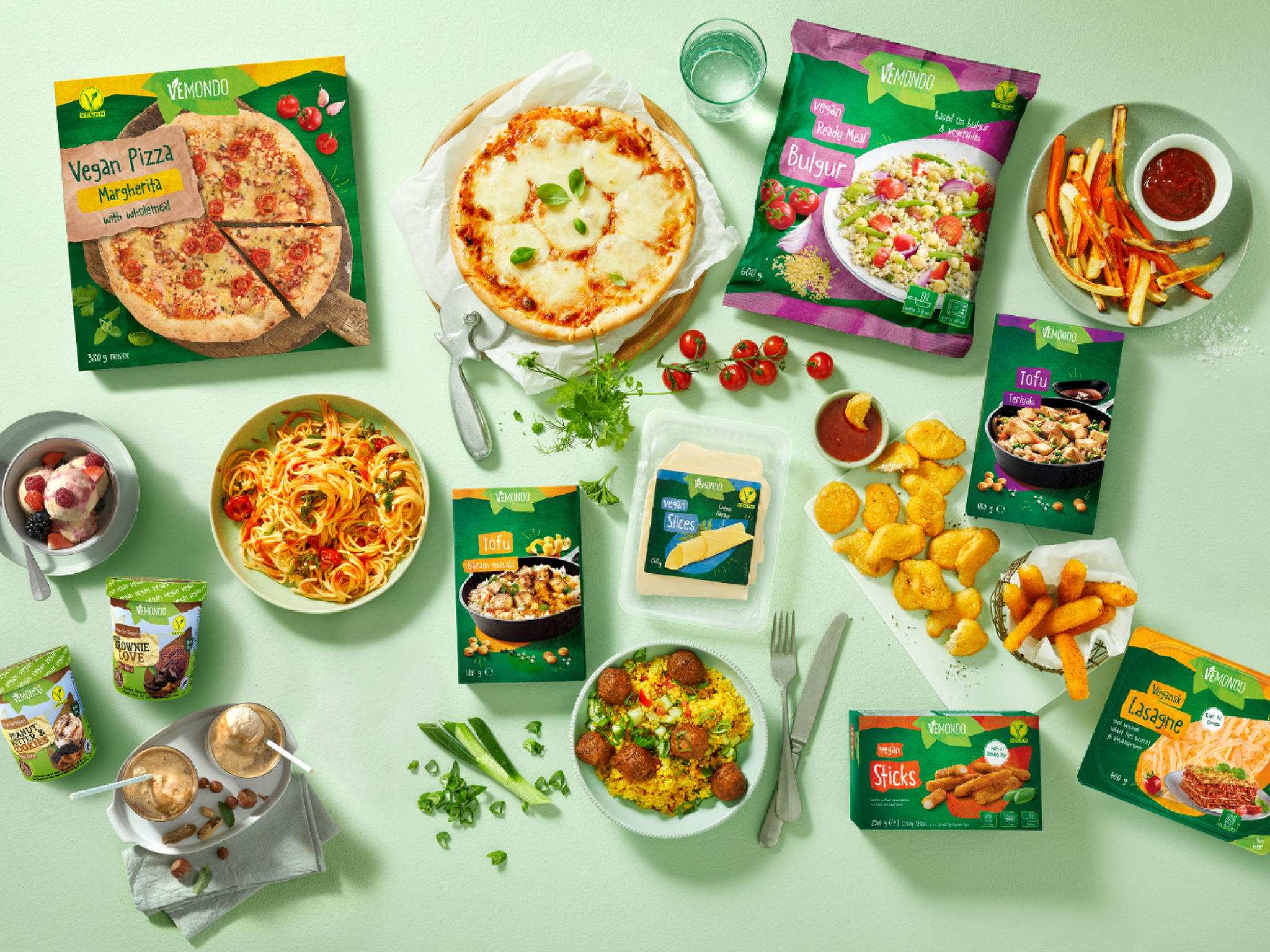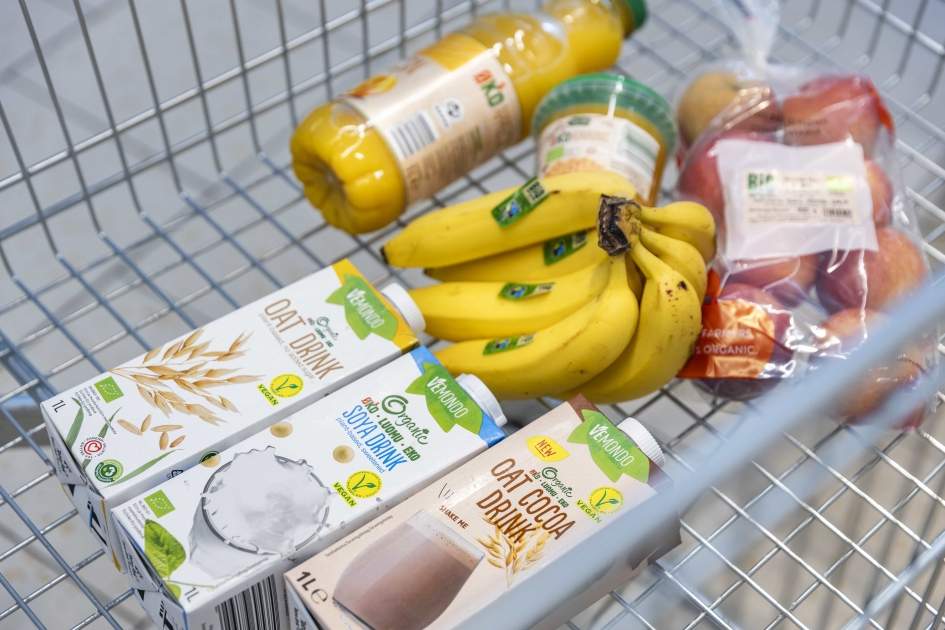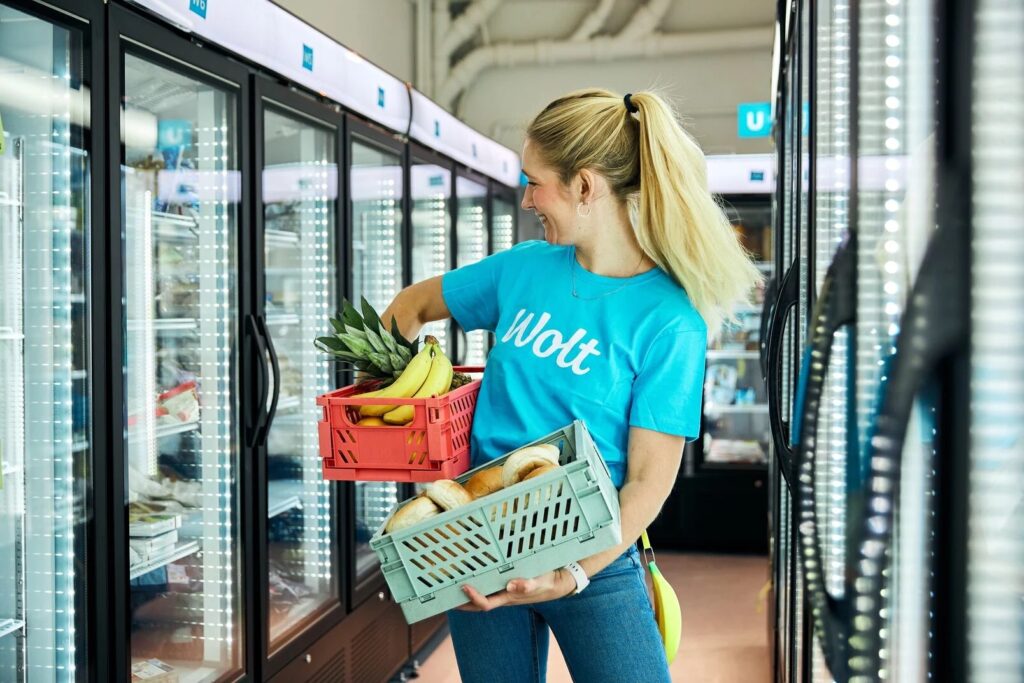
As part of their climate strategies, Lidl and Wolt Market have pledged to increase the share of plant-based proteins they sell in Denmark.
Lidl is further extending its goal to sell more plants and less meat in its stores, announcing a ‘protein split’ target in Denmark.
The retailer is joined by online grocer Wolt Market in setting a plant-based sales goal, weeks after becoming the first retailer outside the Netherlands to adopt the Protein Tracker, a sustainability tool that tracks sales to achieve a better balance between plant- and animal-based foods.
“This is the first time we see Danish supermarkets setting targets for plant proteins. It sends an important signal to the entire industry that transparency and responsibility are the way forward,” said Marie Luja Rasmussen, marketing consultant at the Danish Vegetarian Association.
Lidl Denmark to increase plant-based protein sales by nearly twofold

To set its protein ratio goals, Lidl works with the World Wide Fund for Nature (WWF) across the 31 markets it operates in. Within Denmark, it additionally trials new campaigns and initiatives in collaboration with researchers from the Copenhagen Business School.
Now, it has committed to increasing the share of plant-based meat products sold from 12% to 20% by 2030 (compared to a 2020 baseline). As part of the target, its sales of non-dairy alternatives are also set to double from a 5% to 10% share in this period.
“We can see that consumers are increasingly demanding plant-based alternatives, and with our protein strategy, we want to make it easy and accessible to choose these products in everyday life,” said Maibritt Braukmann, CSR purchasing manager at Lidl Denmark.
The goal echoes Lidl’s global protein sales target, with a pledge to increase the proportion of plant-based foods sold by 20% by the end of the decade. Further, it has a UK-specific commitment to have 25% of its meat and seafood sales sourced from plants by 2030 (in 2021, this was 14%), and double the sales share of non-dairy products from a baseline of 6.4% in 2021.
The discounter was the first to set such goals on a global scale, and is already leading the retail sector’s sustainability shift. Many of the products under its private-label vegan brand, Vemondo, are now priced the same as conventional meat and dairy in several markets. And in the UK, Lidl exceeded its target of increasing plant-based sales by 400% between 2020 and 2025, recording a rise of nearly 700% instead.
“Our goal to increase the share of plant-based alternatives is both an important part of our overall strategy and an expression of the fact that, as a grocery chain, we prioritise developing the assortment in a clear direction,” added Braukmann.
Wolt Market looks to halve emissions by 2028

While Wolt Market has not disclosed its exact plant protein target, it has set a goal to halve its carbon emissions by 2028 (from 2021 levels), on the way to reaching net zero by 2040. Changes in protein sales are part of this effort.
“Measuring and tracking the development of our protein mix is an important step in our work with a larger share of plant-based proteins,” said Martin Rouchmann, category manager at World Market Denmark.
The company’s efforts will be driven by its adoption of the Protein Tracker. Developed by the Green Protein Alliance and ProVeg Nederland (with help from supermarkets and other experts), the tool was born out of the Dutch government’s ambition to bring protein intake back in balance, split equally between plant and animal sources, as was the case in the 1950s.
Companies can calculate their sales using the Protein Tracker’s methodology. These are then validated by experts. After this process, they can choose to make the results public and repeat the assessment annually to provide transparency on their progress.
“Animal proteins are generally associated with a higher average CO2 footprint per kg of protein than many plant-based alternatives. By tracking the protein mix with the Protein Tracker, we gain insights that enable us to set goals, understand the current status, and make decisions based on concrete data.”
Lidl and Wolt Market’s protein targets are part of an industry-wide shift towards lower-emission foods. In the Netherlands, Ahold Delhaize is aiming to raise the share of plant proteins sold to 47% in 2024, 50% in 2025, and 60% by the end of the decade.
In Belgium, Colruyt Group is aiming to offer 60% of its proteins from plant-based sources by 2028. Meanwhile, Rewe Group – which owns Rewe and Penny in Germany and Billa in Austria – has unveiled a target to make 60% of its sales come from plant-based products by 2035.
The post Lidl & Wolt Market Become First Retailers to Set Plant-Based Sales Targets in Denmark appeared first on Green Queen.
This post was originally published on Green Queen.